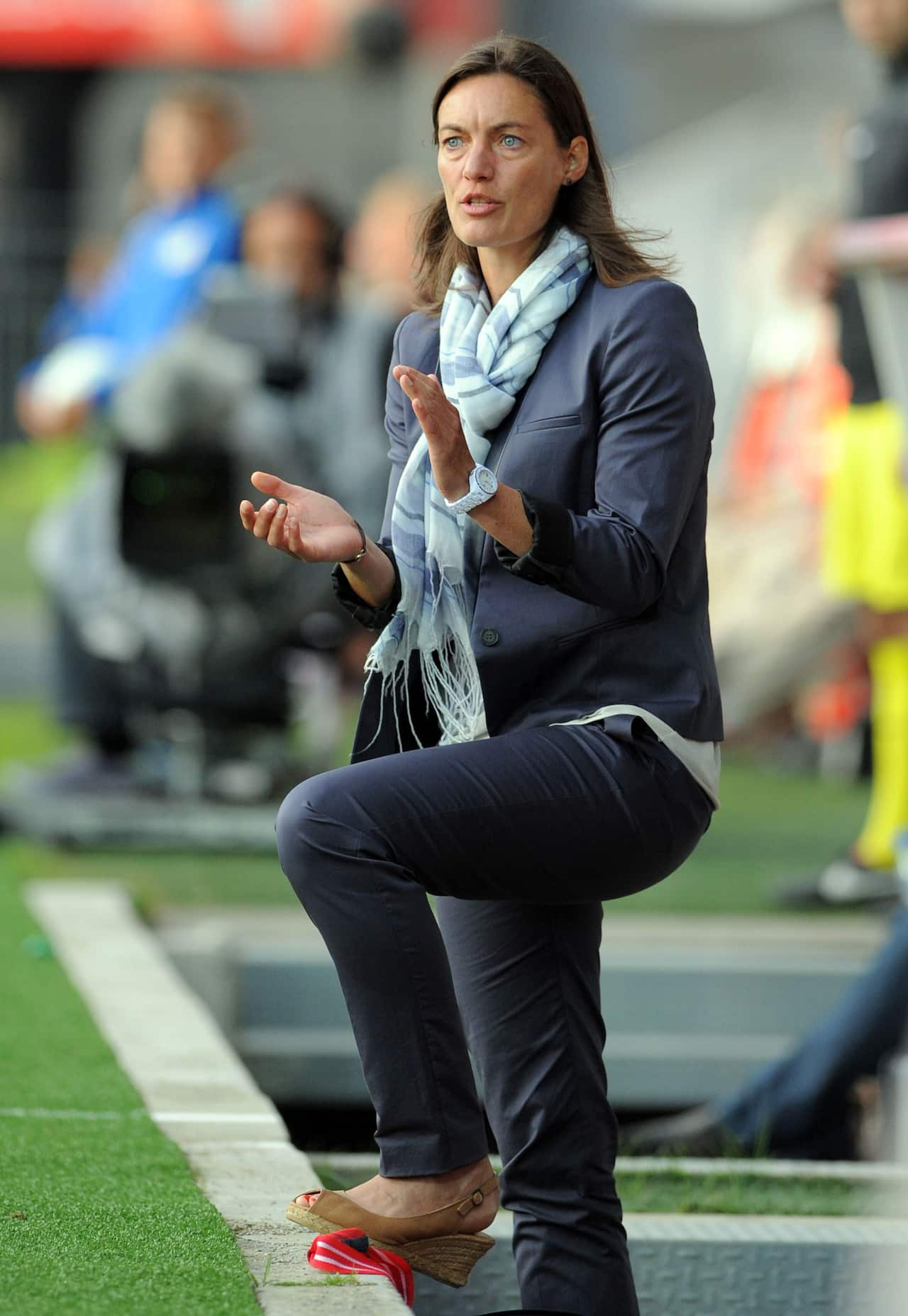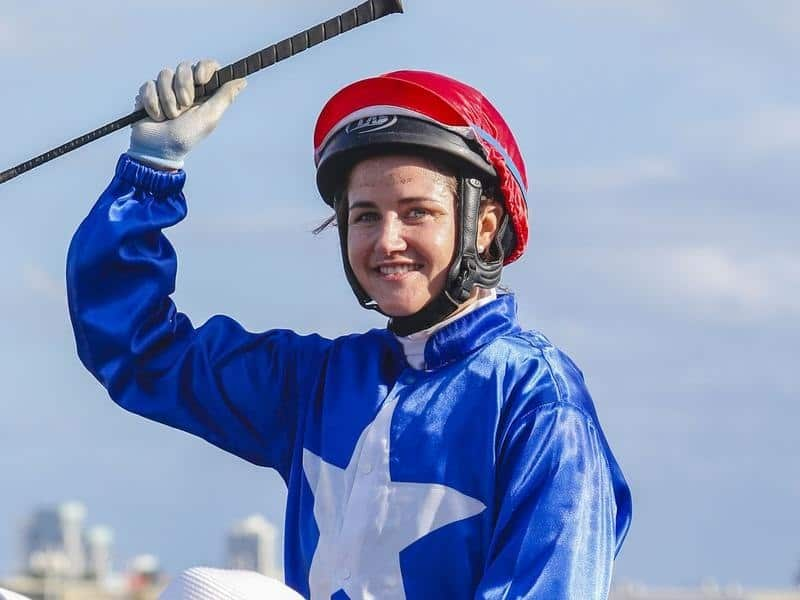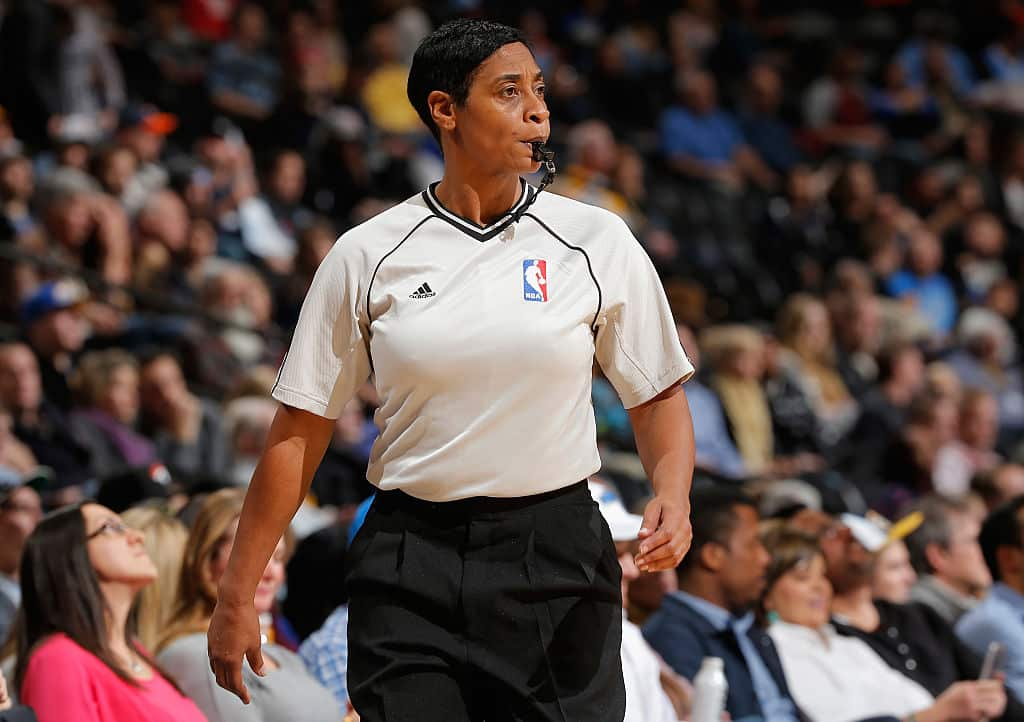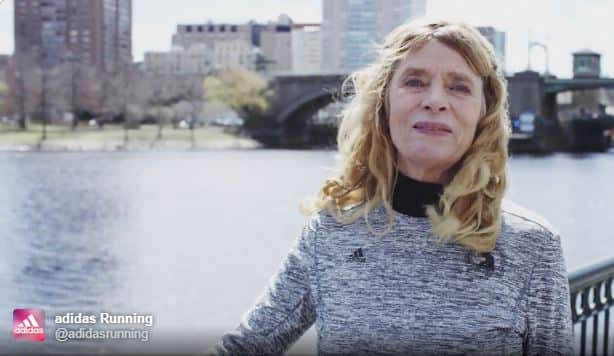Women who forge a path in the world of male-dominated sports face a double challenge: not only must they perform at an elite level, they must overcome limiting stereotypes and fight for acceptance. Here are six brave women who have smashed through the glass ceiling in their chosen sports.
Corinne Diacre
One of France’s most capped football players, Corinne Diacre played 121 matches for the national women’s team between 1993 and 2005. She went on to establish a successful coaching career, first as manager at ASJ Soyaux, the club she played for throughout her career, and then as the assistant manager at the national women’s team.

Corinne Diacre in action at the helm of Clermont Ferrand. (AAP) Source: AFP
In 2014, Diacre replaced Helena Costa as manager of Clermont Foot, a second league team in the French men’s competition. Costa quit after one day’s training, accusing the club of undermining her authority. Diacre fared better, becoming the first woman to coach a professional men’s football match in France. Diacre managed the team for three seasons before returning to the women’s national team as head coach, where she is preparing the side for the 2019 World Cup.
Michelle Payne
When Michelle Payne rode Prince of Penzance to victory in the 2015 Melbourne Cup, she was the first female jockey ever to win the race and just the fourth to compete in it in its 155-year history.
She was quick to thank her supporters, trainer Darren Weir and owner John Richards. “I can't say how grateful I am to them,” she told the crowd. “I just wanted to say that everyone else get stuffed, because they think women aren't strong enough, but we just beat the world.” The win was the realisation of a dream the trailblazing jockey had held since the age of five, and one that she had overcome hardship to achieve. Payne, the youngest of 10 children, was raised by her father, trainer Paddy Payne, after her mother died when Payne was six months old. In 2007, her sister Brigid died after a fall during training that had left her in a coma six months earlier.
The win was the realisation of a dream the trailblazing jockey had held since the age of five, and one that she had overcome hardship to achieve. Payne, the youngest of 10 children, was raised by her father, trainer Paddy Payne, after her mother died when Payne was six months old. In 2007, her sister Brigid died after a fall during training that had left her in a coma six months earlier.

Jockey Michelle Payne was the first woman to win the Melbourne Cup. Source: AAP
Payne also suffered numerous serious falls in her career – one in 2004, which left her with serious injuries including a fractured skull and two more in 2012, one which resulted in four fractured vertebrae and broken ribs
Her career since the 2015 Melbourne Cup has been just as eventful. In 2016, she won the prestigious Don Award at the Sport Australia Hall of Fame Awards, but two episodes – another fall in 2016 that caused serious abdominal injuries and a four-week ban for using a banned appetite suppressant in 2017 – threatened to end her career. It’s her Melbourne Cup win that she’ll be remembered for – especially after the release of Ride Like A Girl, due out in 2019, a film adaptation of her win directed by Rachael Griffiths and starring Teresa Palmer.
Eleni Glouftsis
2017 was a milestone year for gender equality in Australian rules football. Not only was it the debut year of the AFL women’s league (AFLW), it was also the year Eleni Glouftsis was appointed the first female field umpire in AFL history.
Glouftsis, 26, began her umpiring career in Adelaide in 2008 and quickly moved through the SAFNL junior ranks. In 2013, she became the first female field umpire to officiate a senior SANFL match. In 2015, she took up a three-year AFL Female Pathway scholarship in Melbourne which saw her umpire VFL matches throughout 2015 and 2016. In 2017, she became the first woman to break through the grass ceiling when she officiated the round nine clash between Essendon and West Coast. In November, Glouftsis was named 2019 Young South Australian of the year for her contribution to football.
Violet Palmer
Before there was Eleni Glouftsis, there was Violet Palmer, a trailblazing basketball referee from Compton who, in 1997, became the first female official in the NBA. Palmer went on to referee more than 900 games in a career that spanned 19 years, but in the early days her presence on the court wasn’t welcomed by everyone. Charles Barkley famously said of Palmer’s appointment, “I don't think women should be in the Army and I don't think they should be NBA refs.” He later apologised, and in 2006, Palmer became the first female referee to officiate an NBA playoff when she took the court in the match between the Indiana Pacers and New Jersey Nets. In 2014, Palmer snagged another milestone, becoming the first openly gay person to work as an official in the NBA when she announced that she planned to marry her partner of 20 years, Tanya Stine.
Charles Barkley famously said of Palmer’s appointment, “I don't think women should be in the Army and I don't think they should be NBA refs.” He later apologised, and in 2006, Palmer became the first female referee to officiate an NBA playoff when she took the court in the match between the Indiana Pacers and New Jersey Nets. In 2014, Palmer snagged another milestone, becoming the first openly gay person to work as an official in the NBA when she announced that she planned to marry her partner of 20 years, Tanya Stine.

Violet Palmer is also the first openly gay official in the NBA. Source: Getty Images North America
Bobbi Gibb and Kathrine Switzer
It’s hard to imagine today, but 50 years ago, women were not permitted to run marathons. Their delicate constitutions were not up to the demands of a 42.2 kilometre running race – or so the thinking at the time went. By the 1960s, women were agitating for change. In 1966, 23-year-old Bobbi Gibb became the first woman to complete the Boston marathon when she sneaked into the starting pack undetected by race officials. She did it again in 1967 and 1968 and was later recognised as the women’s winner for those years by the Boston Athletic Association. Another female marathon pioneer was Kathrine Switzer, who has the distinction of being the first female entrant to finish the Boston marathon. In 1967, Switzer entered the race using her initials and competed under the number 261. A furious race official spotted her at the two-mile mark and tried to rip off her bib and force her off the track, a moment captured in spectacular fashion by the press pack and broadcast around the world. She finished the race in four hours and twenty minutes – an hour behind the speedy Gibb – and was promptly disqualified and expelled from the Athletic Federation in America. In 1972, women were finally officially permitted to compete in the Boston Marathon. In 2015, female runners made up 46 per cent of entrants.
Another female marathon pioneer was Kathrine Switzer, who has the distinction of being the first female entrant to finish the Boston marathon. In 1967, Switzer entered the race using her initials and competed under the number 261. A furious race official spotted her at the two-mile mark and tried to rip off her bib and force her off the track, a moment captured in spectacular fashion by the press pack and broadcast around the world. She finished the race in four hours and twenty minutes – an hour behind the speedy Gibb – and was promptly disqualified and expelled from the Athletic Federation in America. In 1972, women were finally officially permitted to compete in the Boston Marathon. In 2015, female runners made up 46 per cent of entrants.

Bobbi Gibb was the first woman to finish the Boston Marathon. Source: Adidas running
Norwegian drama 'Home Ground' follows football coach Helena Mikkelsen as she heads up a male professional team. Watch the series on SBS On Demand.
Share



